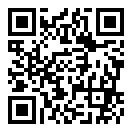Pages:
85-95
Receive Date: 2025/12/26
Accept Date: 2025/12/26
Abstract:
Abstract
Epic education is an important area of education that plays a significant role in the education of a brave, justice-seeking, altruistic, courageous, strong and fearless, anti-tyranny generation. One of these important epic components is courage and bravery. Courage is the most central epic element in Ferdowsi's Shahnameh. Therefore, the present research has been carried out with the aim of explaining the concept of courage in this book and presenting its solutions for the epic upbringing of children. Qualitative approach is used in this applied research, and the analytical and inferential method is used in terms of data collection. The research population is Ferdowsi's Shahnameh and related works. The findings of the research indicate that Hakim Abulqasem Ferdowsi combined courage and struggle with rationality and ethics and replaced love of country and friendship with self-love. These concepts are influential in the epic upbringing of children in the form of components such as methods of modeling, storytelling, critical thinking, trust in God, meditation, and self-management.
چکیده و کلیدواژه فارسی (Persian)
Title :تبیین مفهوم شجاعت در شاهنامهی فردوسی و ارائهی راهکارهای آن برای تربیت حماسی کودکان
Abstract:
تربیت حماسی ازجمله ساحت های مهم تربیتی است که نقش بسزایی در تربیت نسلی شجاع، عدالت خواه، نوع دوست، مبارز، قوی و نترس، ظلم ستیز و مانند آن دارد. یکی از این مؤلفه های مهم حماسی، شجاعت و دلاوری است. شجاعت محوری ترین عنصر حماسی در شاهنامة فردوسی به شمار می رود. بدین منظور پژوهش حاضر با هدف تبیین مفهوم شجاعت در شاهنامة فردوسی و ارائة راهکارهای آن برای تربیت حماسی کودکان صورت پذیرفته است. روش این پژوهش از حیث هدف کاربردی و از لحاظ رویکرد، کیفی است و از حیث جمع آوری اطلاعات به شیوۀ تحلیلی واستنباطی نگاشته شده است. جامعۀ پژوهش، شاهنامه فردوسی و آثار وابسته به آن بوده است. یافتههای پژوهش حاکی از آن است که حکیم ابوالقاسم فردوسی شجاعت و مبارزه را با عقلانیت و اخلاق مداری توأم کرده و عشق به وطن و دیگردوستی را جایگزین خوددوستی کرده که با استنباط از آن می توان در قالب مؤلفه هایی همچون روش الگویی، قصه گویی، آموزش تفکر انتقادی، توکل، مراقبه، خودگردانی، در تربیت حماسی کودکان تأثیرگذار بود.
References:
- ابارشي، ربابه و سعيد تيموري، 1392، «تأثير قصهگويي همراه با ايفاي نقش بر يادگيري مهارتهاي اجتماعي کودکان ناتوان ذهني آموزشپذير»، پژوهشنامۀ تربيتي (دانشگاه آزاد اسلامي واحد بجنورد)، دورۀ هفتم، ش 31، ص 37ـ54.
- ابنمسکويه، ابوعلي، 1383، تهذيب الأخلاق و تطهير الأعراق، ترجمة مهدي نجفي افرا، تهران، نورالثقلين.
- باقری، خسرو، 1383، نگاهی دوباره به تعلیم و تربیت اسلامی، تهران، مدرسه.
- باقری، خسرو، 1388، نگاهي دوباره به تربيت اسلامي، تهران، مؤسسۀ فرهنگي مدرسۀ برهان.
- حجازي، بنفشه، 1380، ادبيات کودکان و نوجوانان، تهران، روشنگران و مطالعات زنان.
- دلشاد تهراني، مصطفي، 1387، روشهاي تربيت در نهجالبلاغه، قم، دريا.
- دهخدا، علياکبر، 1389، لغتنامه، تهران، دانشگاه تهران.
- دياني، مسعود، 1392، «تربيت حماسي؛ چيستي و چرايي»، خيمۀ معرفت، ش 14، ص 1ـ20.
- ساعي، ميرمحمود، 1379، اخلاق و تربيت اسلامي، تهران، دانشگاه پيام نور.
- ساليوان، راجرز، 1380، اخلاق در فلسفۀ کانت، ترجمۀ عزتالله فولادوند، تهران، طرح نو.
- سيف، علياکبر، 1379، روانشناسي پرورشي، تهران، آگاه.
- طبرسي، حسنبن فضل، 1425ق، مکارم الاخلاق، تهران، دار الفقه.
- فراهيدي، خليلبن احمد، 1410ق، کتاب العين، قم، هجرت.
- فردوسي، ابوالقاسم، 1394، شاهنامه، به کوشش سعيد حميديان، تهران، قطره.
- فلاح، مرتضي، 1389، «مباني آموزش و پرورش در شاهنامه»، نثرپژوهي ادب فارسي (ادب و زبان)، دورۀ جديد، ش 28 (پياپي 25)، ص 213ـ242.
- لعل شاطري، مصطفي و هادي وکيلي، 1392، «تأثير غرب بر موسيقي نظامي ايران»، پژوهشنامۀ تاريخ و تمدن اسلامي، سال چهل و ششم، ش 23، ص 69-92.
- مطهري، مرتضي، 1389، مجموعۀ آثار، چ ششم، تهران، صدرا.
- موسوي، سيدمهدي، 1392، «تربيت حماسي، الگوي تربيت مهدوي»، مشرق موعود، سال هفتم، ش 26، ص 91ـ114.
- نقيبزاده، ميرعبدالحسين، 1389، نگاهي به فلسفۀ آموزش و پرورش، تهران، طهوري.
- نکوئيان، حبيب، 1389، تبيين آراء تربيتي فردوسي با استناد به شاهنامه، پاياننامۀ کارشناسي ارشد فلسفۀ تعليم و تربيت، شيراز، دانشگاه شيراز.
- نوروزي، خورشيد، 1386، «تحليل نوع ادبي سمک عيار»، ادبيات عرفاني و اسطورهشناختي، سال سوم، ش 9، ص 135ـ159.
- Ćurko, Bruno. Feiner & et al, 2018, 2018, Ethics and values education Manual for Teachers and Educators, London, University of Illinois.
- Dearden,R.F, 1975, "Autonomy as an Education Ideal", in Brown, S.C.(ed), philosophers Discuss Education, London, Macmillan.
- Ennis, Robert h, 2002, An outline of goals for a critical thinking curriculum and its assessment, available at:http://faculty. ed. Uiuc.edu/rhennis.
- Mike, 2001, Critical thinking for working students, Columgia, Delmar press.
- Snyder, C. R., Lopez, S. J., & Pedrotti, J. T, 2010, Positive psychology: The scientific and practical explorations of human strengths, Sage Publications.
Cite this article:
RIS
Mendeley
BibTeX
APA
MLA
HARVARD
VANCOUVER
APA | MLA | HARVARD | VANCOUVER
, Mohsen, , Irandokht, , , , Ahmad.(2025) Explaining the Concept of Bravery in Ferdowsi's Shahnameh and Presenting its Solutions for the Epic Education of Children. Marifat, 31(4), 85-95
APA | MLA | HARVARD | VANCOUVER
Mohsen ; Irandokht ; ; Ahmad ."Explaining the Concept of Bravery in Ferdowsi's Shahnameh and Presenting its Solutions for the Epic Education of Children". Marifat, 31, 4, 2025, 85-95
APA | MLA | HARVARD | VANCOUVER
, M, , I, , , , A.(2025) 'Explaining the Concept of Bravery in Ferdowsi's Shahnameh and Presenting its Solutions for the Epic Education of Children', Marifat, 31(4), pp. 85-95
APA | MLA | HARVARD | VANCOUVER
, M, , I, , , , A. Explaining the Concept of Bravery in Ferdowsi's Shahnameh and Presenting its Solutions for the Epic Education of Children. Marifat, 2025; 31(4): 85-95
 / Ph.D. in the Philosophy of Education, Allameh Tabatabai University, Tehran / m.khoshnamvand@gmail.com
/ Ph.D. in the Philosophy of Education, Allameh Tabatabai University, Tehran / m.khoshnamvand@gmail.com



